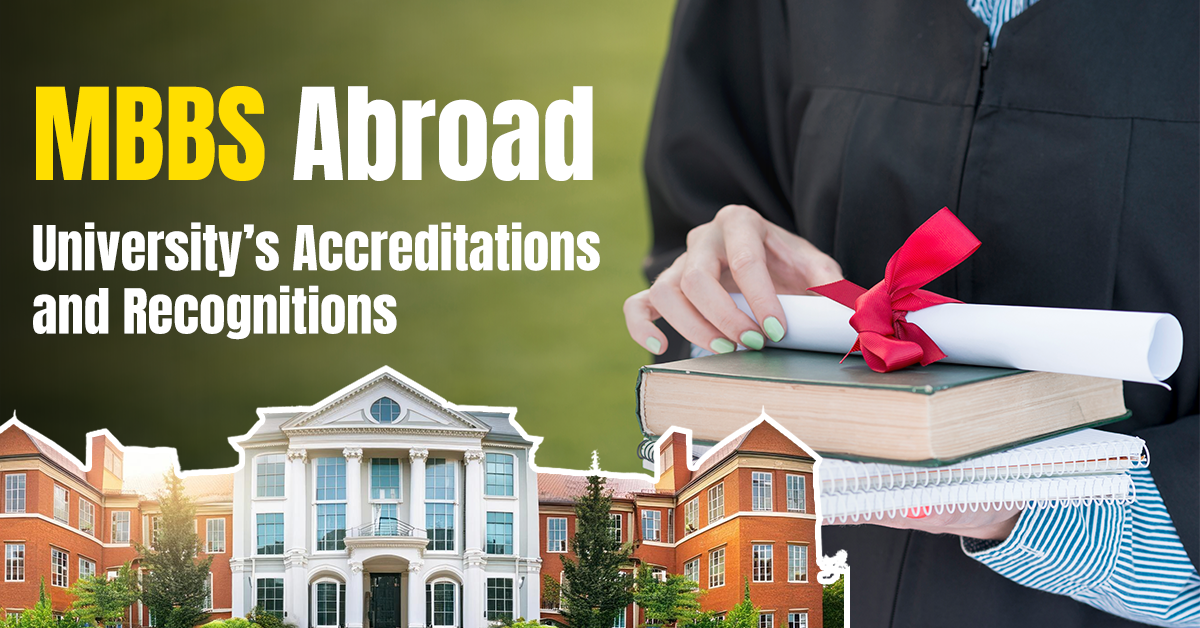
The dream of becoming a doctor is a noble aspiration shared by many, and with the increasing competition for medical seats in India, many students are turning their attention to studying MBBS abroad. While the prospect of pursuing medical education in a foreign country is exciting, it’s crucial to understand the complexities involved, especially concerning accreditations and recognitions.
What are Accreditations and Recognitions?
Before delving into specifics, let's clarify these terms:
Accreditations: This is a process by which an authorized body evaluates an institution’s programs or degrees to ensure they meet specific quality standards.
Recognitions: This refers to the acceptance of a degree or qualification by a particular country or professional body, allowing the holder to practice or pursue further studies.
Why are Accreditations and Recognitions Important?
Quality Assurance: Accreditations guarantee that the medical education you receive meets international standards.
Career Prospects: A degree from an accredited institution enhances your chances of employment and further studies.
Licensing & Registration: You typically need a degree from a recognized institution to practice medicine in a specific country.
Student Visa: Many countries require that your university is accredited to obtain a student visa.
Key Accrediting Bodies
Several organizations globally accredit medical schools. Some of the most prominent ones include:
Recognitions & Equivalence
Once you graduate, the recognition of your degree becomes crucial. Different countries have their own set of standards for evaluating foreign medical graduates. Some common scenarios include:
In India, for instance, there is the Foreign Medical Graduate Examination (FMGE) which international medical graduates must clear to practice medicine.
Choosing the Right University
When selecting a university, medical students should consider the following:
Overcoming Challenges
Studying MBBS abroad comes with its own set of challenges:
Wrapping it Up
By carefully considering these factors and conducting thorough research, you can significantly enhance your chances of a successful MBBS journey abroad and a fulfilling career in medicine. Always prioritize obtaining a quality education from accredited institutions and ensure that your degree is recognized in the country where you wish to practice. This approach not only safeguards your professional aspirations but also ensures you meet the stringent standards required to provide exceptional healthcare services.
Also Read: Frequently Asked Questions About MBBS Abroad